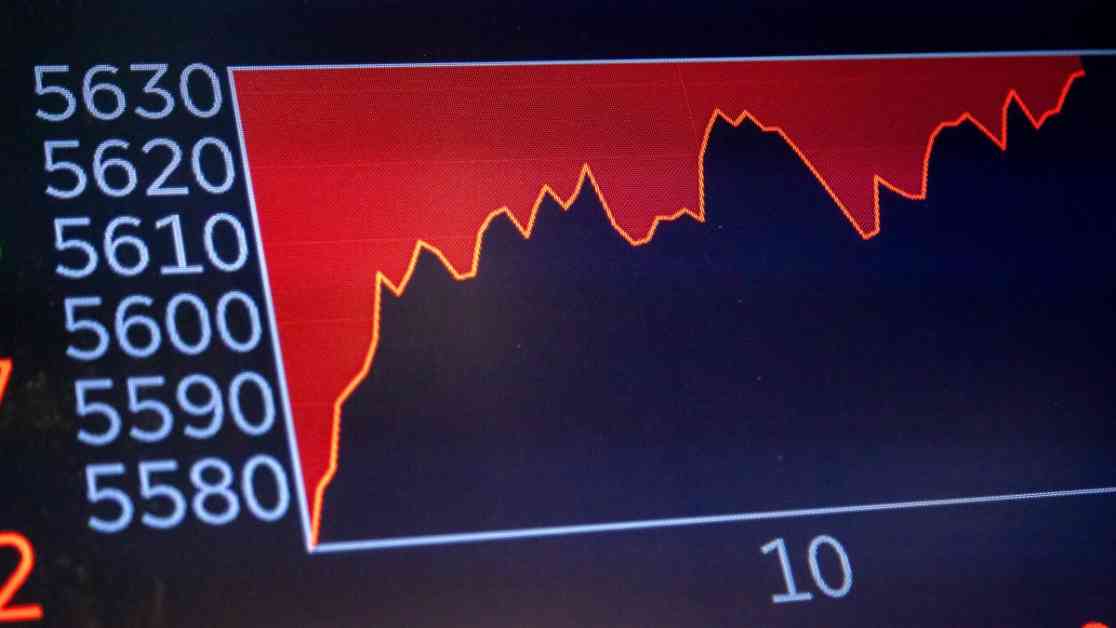Retirees Feel Impact of Tariffs on 401(k)s
Retirement is supposed to be a time of relaxation and enjoyment, a reward for years of hard work. However, recent market turmoil following President Donald Trump’s escalation of tariffs has left many Americans nearing retirement feeling anxious and frustrated. The impact on their 401(k) accounts has sparked concerns about their financial stability during their golden years.
The second day of market turmoil on Friday shook the global economy, prompting individuals who rely on their retirement funds to voice their worries about the economic chaos hitting too close to home. People like Paula, a former occupational health professional in New Jersey who retired three years ago at the age of 68, expressed their concerns about the uncertainty ahead.
As Paula shared her story, she revealed her stunned reaction to the financial losses experienced in the market. With a significant portion of her savings invested, she and her husband are left hoping for a recovery. Paula’s sentiments echoed those of many retirees facing similar uncertainties about their financial future due to the recent market fluctuations and tariff escalations.
The Impact of Tariffs on Retirement Accounts
The decision to unleash sweeping tariffs, including on major trading partners, has sent shockwaves through the stock market. On Friday, the S&P 500 closed down by 6%, the Nasdaq dropped 5.8%, and the Dow Jones Industrial Average fell by over 2,200 points, signaling a significant impact on retirement accounts tied to these market indices. The retaliatory tariffs imposed by China further exacerbated the situation, leading to substantial losses for millions of Americans with 401(k) investments.
Victor Fettes, a 54-year-old retiree from Georgia, shared his distress at witnessing a $58,000 loss in his 401(k) over just two days. The rapid decline in retirement savings has left many retirees questioning their ability to sustain their lifestyle post-retirement.
Expert Insights on Tariffs and Economic Stability
President Trump’s tariff policies, aimed at reshaping the manufacturing landscape and bringing jobs back to the U.S., have drawn mixed reactions from investors and business groups. While Trump remains steadfast in his defense of these tariffs, concerns about potential price increases for consumers and the broader economic implications persist.
The unprecedented nature of these tariffs and their potential impact on the economy have raised alarms among Americans, particularly those approaching retirement age. Alison Carey, a 64-year-old freelancer from Oregon, expressed her fears about the uncertainty surrounding her financial security in light of the ongoing market turmoil and policy decisions.
The Human Toll of Economic Uncertainty
For individuals like Paula and her husband, the uncertainty surrounding their retirement accounts has forced them to reevaluate their spending habits. Pausing big-ticket purchases and reconsidering lifestyle choices have become common strategies for retirees looking to weather the financial storm caused by market fluctuations.
As the financial reality of many retirees hangs in the balance, the emotional toll of economic instability is palpable. Benajah Cobb, husband to Alison Carey, emphasized the need for lawmakers to intervene and provide safeguards against the potential fallout from ongoing market turmoil and trade policies.
Looking Ahead: Navigating Financial Challenges in Retirement
As retirees across the country grapple with the impact of tariffs on their 401(k) accounts, the road to financial security in retirement appears increasingly uncertain. The looming question of when retirement funds will run out adds to the anxiety and stress felt by individuals like Paula and Victor Fettes, who have worked hard to secure their future only to face unforeseen challenges in their golden years.
In conclusion, the economic uncertainties brought about by market turmoil and tariff escalations have underscored the vulnerability of retirees relying on their 401(k) investments for financial stability. While hopes for a market recovery persist, the emotional and financial toll of these challenges continues to weigh heavily on individuals approaching retirement age.
Minority Leader Chuck Schumer’s criticism of the White House’s tariff policies serves as a reminder of the broader political and economic implications of these decisions. As retirees navigate the complexities of financial planning in uncertain times, their voices and concerns serve as a poignant reminder of the human impact of global economic policies.














